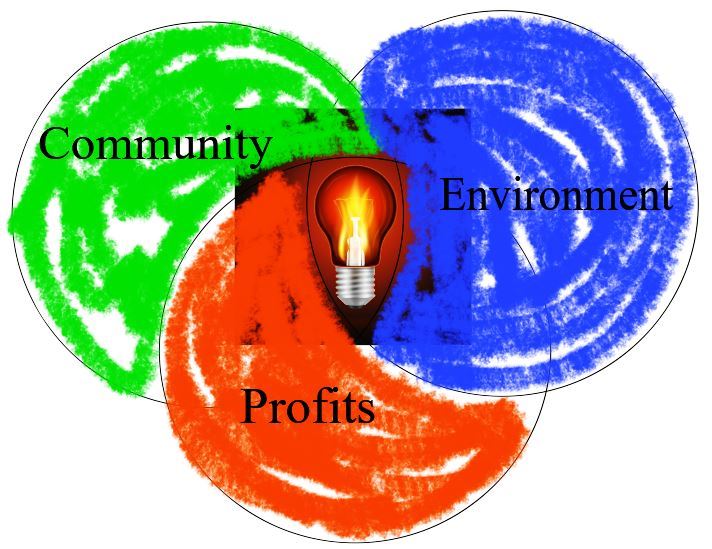A Sustainable Return On Investment With Palom Aquaculture

Sustainable return on investment? Yes, Palom Aquaculture must protect investor capital, the local community and the local environment.
Sustainable Competitive Advantage - Palom is the first, and only, permitted company in a highly unusual location with remote, cold, clean sea water. New businesses will face onerous lengthy, local, state and federal approvals coupled with expensive coastal land costs. Selling to outside companies, we can monetize former waste products; blood for bioscience applications and offal for human food supplements.
Immense Markets - 2.5 Billion salmon food market, 2.0 Billion
bioscience market, 2.2 Billion restrictive diet market. We have calls
for our product; demand exceeds
production
Active Palom Team - Has solid marketing, technology, farming, execution experience
Tangible Market - Palom successfully test-marketed imported organic salmon and has buyers for blood and offal
 What Is The Correct Blend of Profit, Community and the Environment?
What Is The Correct Blend of Profit, Community and the Environment?Palom’s Permits – Barrier to Entry for our Competitors -
Our permits are unique to
salmon farming in the USA. According to
DEP, we were the first in over ten years to modified permit language. Modification
of Palom’s existing permits is easier than starting from scratch as applicants
must publicly state species and its
origins at the beginning of the process.
First Come First Served - Palom would be the first
major effluent discharger in Prospect Harbor; all
future companies discharging must include your pollution in the total contamination of the bay, increasing the newcomer's costs.
Permit Approval Statistics
- Almost four years from initial regulatory meeting
- 4,511 emails and counting
- 37 individuals from 17 organizations reviewed application materials. Maine AG’s office held up final approval (DEP, DMR, and Army Corps) said it was the first time AG got involved, added its language.
- 13 Go, No-Go Tasks Completed, involving public and regulatory review with challenge periods.
In determining pre-money valuation for potential investors, Palom engaged friends from Boston University, the University of Pennsylvania and the University of Liverpool to justify value. All claim to have proprietary Real Options Algorithms which use Berkus, Scorecard, and Venture Capital Methods. Their pre-money valuations of Palom averaged $4,000,000.
Capital May Be Secured By A:
- First lien perfected interest on land and improvements
- Management contract
- Tax credit cash rebates from the State of Maine
- Non-cash pledge of marketable assets
Sustainable Return on Investment - Protect and Enhance the Local Community
Careers in Aquaculture – Both Scientific and Commercial - Economic Base Industries, like aquaculture, bring dollars into the state and serve sheltered or local industries as detailed in the Maine Technology Institute and Battelle study of April 2014. Palom will sell its products throughout the United States east of the Mississippi River.
Palom’s operating expenses will exceed $3,000,000 annually in the first phase of development. Multiplier effects of 2 to 5 can ripple through the local and regional economies. Additionally, about $2,500,000 will be spent locally to construct the farm.
Palom will collaborate with the local aquaculture research facilities: the Center for Cooperative Aquaculture Research (CCAR), the USDA Cold Water Marine Aquaculture Center both in Franklin and the Down East Institute in Beals. Commercialization of ideas will bring in more grant monies and startups in their incubator space. This “cross-pollination” has already begun with Kennebec River Biosciences which can harvest salmon blood from Palom for various pharmaceutical products. A sustainable return on investment does not have to conflict with enhancing the local community.
 Can We Keep Young People In Maine?
Can We Keep Young People In Maine?Long Term Benefits - Prosperity will encourage young people to stay in Maine with careers in an expanding and profitable aquaculture industry. Palom will hire the best people with skills in microbiology, fish husbandry, engineering, and marketing. Palom needs people who wish to become part of a paradigm shift as to how growing marine protein can be profitable and sustainable.
Gouldsboro Businesses – Maine Fair Trade Lobster, has extra space and workforce to process salmon keeping employment high
CCAR – Is about 20 minutes by car to this research facility a plus when developing a breeding program or testing various theories to improve Palom’s growing of fish. This amazing research facility can flourish with multiple sources of income including private research projects, government grants, and rents and royalties from in-house start-ups.
Gouldsboro – The local people and officials openly support project which will add tens of thousands of dollars to the local town budget
Grants – Winning grants is easier when multiple companies (critical mass) apply: Acadia Harvest, Kennebec River Biosciences, Palom and local startups at CCAR
The Key to Maine Marketing - Palom will promote the purity of Maine’s cold ocean water and its local aquaculture expertise; grow and harvest marine fish for human consumption
State of Maine Endorsed - Pine Tree Economic Zone approved
Sustainable Return on Investment -
Do No Harm to the Local Environment
Do Not Disturb Sensitive Lands – Palom is re-purposing abandoned Naval site
Remote Site - No lobster pots, fish pens, residential homes, site will not obstruct views land owners
Natural Build – Crushed rock base, minimal blasting of granite
Remove Pollution – the site had remnants of fuel storage tanks, transformers, lead paint and asbestos
Open Ocean – Prospect Harbor has a large tide change creating a huge dilution factor for highly filtered, and UV treated effluent. Constant computer monitoring of effluent characteristics
Barriers and Land Bridge – Salmon, cannot escape nor can pathogens over dry land
Cold Water – Inlet pipe is 60 feet below surface, allows for ideal control of water chemistry and temperature of salmon
Redundancy – Backup, multifuel generators will keep farm running during disasters
Prevention – No-Escape Plan and Disease Management Plan are posted, practiced, monitored and recorded
Traffic – Minimal truck travel to and from the site
Sustainable Return on Investment - No Waste
- Salmon flesh to organic markets
- Salmon blood to pharmaceutical companies
- Solid wastes to organic fertilizer companies
A sustainable return on investment requires minimizing waste.
Disease outbreak within RAS happens far less than Net-Pens simply because RAS have physical barriers such as tanks, walls, and ceilings and RAS purifies incoming water with microfiltration and then disinfects the filtered water with high doses of UV light and ozone. Net-Pens are subject to disease as there are no physical barriers. Infections spread through well boats, currents, predatory birds and migrating fish. Prophylactics are the only weapon available, eliminating the organic market for these fish. There is a massive lice infection worldwide costing billions to control and degrading the quality of salmon meat in the conventional market.
If disease is present in RAS, the operator may harvest the fish and sell into the conventional market or secondary market like pet food. Diseased fish remain contained with the walls of the farm. Crop insurance covers for any deficiency balances.
Large, non-organic, multinational
companies are developing
RAS both to create super-smolt and salmon grow-out facilities. A super smolt is a baby fish biologically ready to grow in
seawater (“smoltified.”) Large companies
are strategically limiting mature salmon in seawater due to the inherent risks of disease, predation, and fatal extreme weather.
Here are hyperlinks to the David Suzuki Foundation and Seafood Choice recommendation of RAS. Both organizations are highly critical of net-pens but also realize that the wild fish supply cannot meet demand, and RAS is a viable solution. A sustainable return on investment is not automatically in conflict with environmental stewardship.